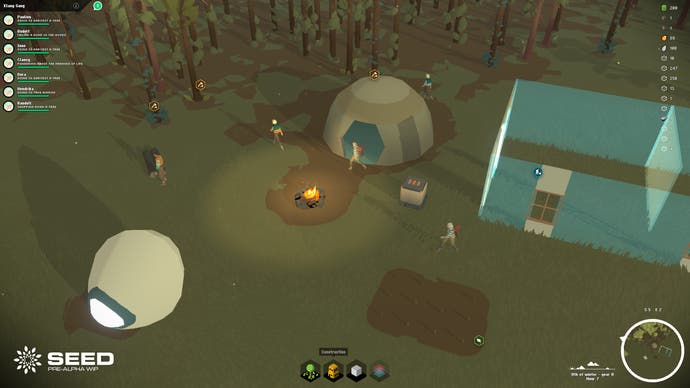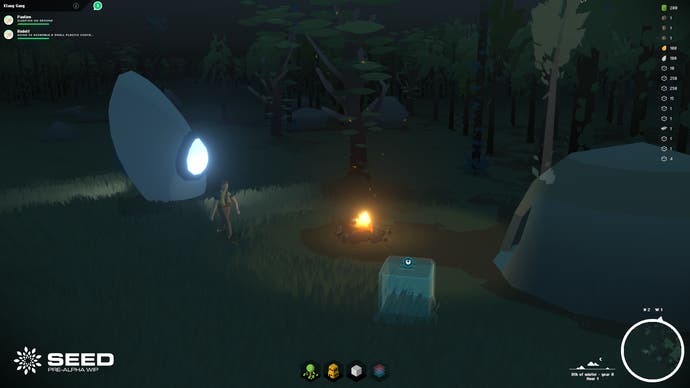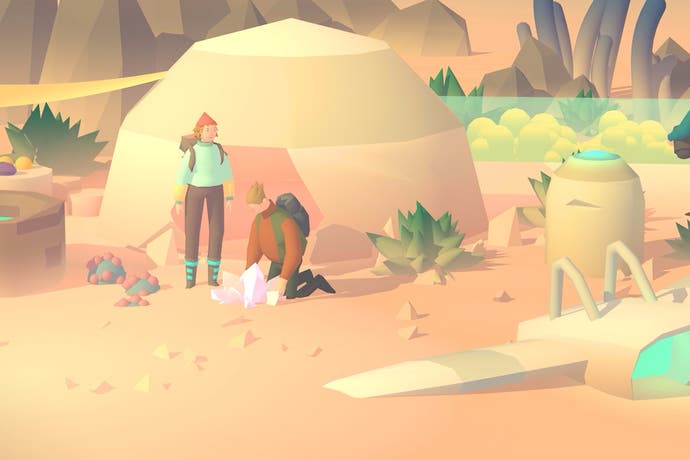Is this our next great dystopia?
'Players won't be forced to wage wars...but they will undoubtedly happen.'
For me, a humble denizen of the 21st century, I have developed a real interest in the dreariness permeating Earth in 2017. I think a lot more about nukes now for example, which is a fun addition to my usual suspect of bewildering fears. I think a lot about the movie Threads in which the Soviet Union attacks Sheffield and everybody dies from ultraviolet radiation. I imagine in my mind the world in isometric perspective and what a contender this timeline would be for a cosmic re-roll if this only were a session of Civilization.
But history has taught us this is an old sensation. That every so often, with a kind of ebb and flow regularity, it just looks like it's probably the end of the world. The Renaissance world viewed the planet as decaying. Poet John Donne notes that the lifespan of people had shortened considerably since the Adams and Methuselahs of Biblical times, who were said to have lived to the ripe old age of 930 and 969 years, respectively. Sir Walter Raleigh following his expedition up the Orinoco River concluded that the world was run down like a clock, and that men had lost sight of truth and were in descent "lower and lower, and shrink and slide downward."
How did we deal with impending doom then? Sir Thomas More imagined an alternative society on an island, laying down the framework for a community that could exist in response to the state of European society at the time. Francis Bacon believed in the possibility for progress in natural science to lead to better social conditions, imagining the scientifically advanced society of New Atlantis. At times when the present looks grim, utopian thought experiments can offer new perspectives.
God games like Black and White, resource games like Settlers of Catan and Civilization, or SimCity are another kind of prism through which to imagine a potential society. Can virtual worlds become a tool for visualizing alternative paths?
Seed is the kind of game that could feasibly answer a question like this. Currently in development by Berlin-based studio Klang, Seed is a complex MMO where players grow a civilization beginning with a team of two characters, then create a political and economic system, and decide to either collaborate with or go to war against their fellow players.
Studio co-founder Ivar Emilsson describes Seed to me as a colonialist story set on one vast planet with limited resources. In the game, a so-far ambiguous event has led to the downfall of your home planet and you are now tasked with colonising an exo-planet in a nearby solar system to re-form society from scratch.
"Each community starts off with the condition of anarchy, with no leader or head of the colony," says Emilsson. The colony grows over time, and eventually it becomes big enough and unlocks the ability to propose a constitution - what is essentially a customizable political framework where the player can decide on different societal laws, from taxation limits to the rights of characters. As progression happens organically, characters will grow, breed, and develop their social construct. Likewise, as the community eventually comes under threat, so does the physical and mental health of the individuals who make up the community.
"In essence, a colony is a collective of people trying to work together, to protect one another. But, a colony can become whatever it wants to become. It can become power hungry and aim to take over other colonies, or try to collaborate with surrounding colonies and create a friendly society. Ultimately, the goal of the colony is to improve the lives of the characters living in it."
Citizens of Seed live in geodesic domes, those strange, sort of polygonally elegant tents popularized by back-to-the-land communities of the 1970s. For the initial two characters, players can shuffle through randomly generated characters, each having their own random set of traits. But characters also start to develop new traits based on their surroundings and environment, as well as social pressures and lifestyle choices.
For example, say a character is being neglected or has a bad state of well-being. They may develop a depressive trait, which could lead to alcohol dependency or maybe something worse. These traits can then be passed down from one generation to the next.

Here's a possible scenario:
Let's say you have a character with a low happiness trait. She goes to work in a factory, day in, day out. Eventually her mood becomes very explosive. One day, after a long day she insults a fellow colleague who then also loses some of their happiness.
"Because of this encounter, this colleague sinks into depression," Vondi says. "Now in this depressive state, the character no longer goes into work, which then slows down the production in the factory. Now, the owner of the factory is also affected as they no longer receive any income. It can really spiral on forever. And that's the whole idea; it's a constant flow of events and simulations."
"There's a mix and match of several different systems: mental attributes, physical attributes, preferences, and traits," Emilsson continues. "But, at this stage, the exact number has not yet been determined. However, one could argue that once characters start adapting to their environment, developing skills, and building relationships, they'll almost all be unique."
Seed is built on SpatialOS, a platform that can realise a vast number of worlds on a network of continuously running servers. Funded in part by a $502 million investment from Japan's SoftBank last year, this platform is capable of creating an MMO universe of greater scale and complexity than previously possible. This will enable political systems made up of extremely large player groups, Emilsson tells me. "Colonies will be much broader than traditional MMO clans," he says. "We're aiming for bigger community simulations, something that has never before been seen in gaming."

That kind of size allows for a lot of variety in terms of experimental politics. So Klang is harnessing the brainpower of Harvard law professor and constitutional law expert Lawrence Lessig to help oversee the broader political framework in Seed, including the initially pre-programmed economy. This will eventually evolve as the community trades and grows, or even as some opt out of the whole system of global capitalist trade entirely.
The addition of Lessig to the team represents the point in our alternate Sliders universe where MMOs merges with real-world politics. You may recognize Lessig's name from his 2016 presidential campaign as a democratic candidate - the campaign motto "Fixing Democracy Can't Wait" didn't gain a lot of traction in but it's possible it can find a place in a virtual setting. After all, can't you also phrase it this way?: Build alternatives now.
Emilsson thinks the likelihood of a successful utopia being created in the game is pretty much nil. "Players won't be forced to wage wars," he says. "But they will undoubtedly happen." That's always encouraging. But then again while utopia is out of reach, perhaps virtual worlds like this can allow us to explore the alternatives, be they weird or chaotic, or on the off chance better.
Klang is scheduled to open the doors to a playable version of Seed in early 2018. In the meantime, you can read more about Seed via the project's website.


